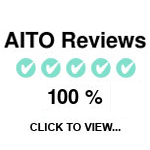CAA Proposal To Scrap Small Business ATOL – Big Mistake (03.07.14)
This week’s announcement that the Civil Aviation Authority (CAA) plans to scrap the Small Business ATOL Licence (SBA) – specifically designed for tour operators arranging fully bonded ‘packaged holidays’ for less than 500 passengers a year – is, to my mind, ill-judged, inappropriate and short-sighted.
 Having set up, run and managed Nomadic Thoughts as a UK-based tour operator over the past twenty-six years I, like many of my industry colleagues in the independent sector, have been only too aware of our responsibilities in safeguarding our clients’ money and holiday reservations. Throughout this time we, unlike many other organisations, have embraced the concept of safeguarding our clients’ financial protection by arranging holidays for clients with the peace of mind (for them and us) that their trip is financially protected by appropriate ATOL Licence cover. In our case we successfully operate with a SBA, posing a minimal risk to the CAA (who underwrite our clients’ ATOL holidays).
Having set up, run and managed Nomadic Thoughts as a UK-based tour operator over the past twenty-six years I, like many of my industry colleagues in the independent sector, have been only too aware of our responsibilities in safeguarding our clients’ money and holiday reservations. Throughout this time we, unlike many other organisations, have embraced the concept of safeguarding our clients’ financial protection by arranging holidays for clients with the peace of mind (for them and us) that their trip is financially protected by appropriate ATOL Licence cover. In our case we successfully operate with a SBA, posing a minimal risk to the CAA (who underwrite our clients’ ATOL holidays).
As a small independent tour operator we have played a very straight bat regarding compliance over the decades, staying squarely on side with the often time-consuming, expensive and disproportionate regulatory requirements. Brushing aside frustrations that other sectors of the travel industry appear to be selling holiday services without the necessary licensing and bonding levels, we have continued to believe that our clients’ financial security is very much a part of the service offered by Nomadic Thoughts.

Small Business ATOL – peace of mind wherever you holiday.
The proposed abolition of SBA throws out a potentially lethal banana skin to any small travel company offering ring-fenced package holiday services. The alternative is a disproportionately expensive and onerous full ATOL Licence compliance.
When ten years ago the SBA was introduced to assist small and medium enterprises (SMEs) as part of financial rules tightening, it was welcomed for its simplicity and common sense. With the UK offering such an exciting and eclectic mix of specialist travel companies, the SBA works particularly well for entrepreneurial SMEs who would otherwise probably never become full ATOL holders.
If the SBA is abolished, the proposed sea change in base-level entry requirements for a full ATOL will cause a considerable number of the country’s most eclectic travel companies to re-evaluate their own business models, with potentially negative consequences.
For example, Nomadic Thoughts is a member of AITO (Association of Independent Tour Operators), a flagship trade association with over 120 member companies, a quarter of which have SBAs. AITO very much embraces the concept of specialist tour operators, which offer a plethora of exciting and varied independent holidays. Should the SBA be axed, a considerable number of those holidays may disappear under a maelstrom of red tape and excessively expensive compliance.
On the basis that the present SBA safeguards the CAA (underwritten by the Government/tax payer) as it is, I question this proposal to change a process which serves both the government and SMEs so well. As things stand, the cost to the ATOL scheme/Air Travel Trust Fund (ATTF) is negligible and the risk relatively small.
We should not lose sight of the fact that the Air Travel Trust Fund (ATTF) is now, for the first time in years, showing a £50m surplus and growing. The CAA consultation mentions that the SBA scheme (with approx. 950 companies) has cost the CAA approximately £780,000 per year (a total of £3.9m over five years) – an extremely small amount in terms of the ATOL scheme/ATTF finances in their entirety.
In simple terms, the business of addressing the scheme’s finances is wholly disproportionate. Dividing the cost of £780,000 by the number of SBAs gives an annual deficit per company of just £821. This means that even if each SBA was charged £821 more per annum, this would wipe out the deficit and would be far more cost-effective.
So why use a bazooka to blow away a mosquito?
I do understand the argument that rogue traders are, as ever, a concern. However, this issue could be effectively addressed with a more streamlined CAA policing service, targeting the companies and individuals most at risk. This would tackle the source of the problem early on, without adversely affecting the many compliant SMEs which rely on the SBA as a method of financial protection for their clients.
Furthermore, at a time when the government is apparently trying to assist small businesses, the scrapping of SBAs makes no sense to new business start-ups. If SBAs are demolished, licences will only be granted to companies with a minimum projected turnover of £500,000 a year.
The SBA scheme has helped many start-ups in the special interest sector over the past ten years. In some cases, because of their specialism, these tour operators will probably never become full ATOL holders. On the basis that an abolition of SBA would end this assistance, why penalise these entrepreneurial SMEs?
Under the proposals, from April 2015, new entrants into the ATOL scheme would potentially have to pay a minimum bond of £75,000 (reduced to zero over four years), £35,000 more than the current initial bond for new SBAs.
Asking SBAs to become full ATOL holders and thus paying significantly more will, I believe, simply encourage more tour operators to become rogue traders and to dodge the system in its entirety. At a time when ‘consumer protection’ in the travel market is becoming more respected, the playing field for responsible, compliant SMEs will become more uneven.
The timing of this proposition is also misjudged. With an initial consultation period running for only three months, I do not understand why the CAA has chosen to act at this stage on SBAs, when the current Package Travel Regulations (PTRs) are about to be amended post EU consultation. With potential PTR changes in the pipeline, as well as the Government claiming to wish to reduce bureaucracy and business costs, this is a time for reflection and not a knee-jerk reaction.
Furthermore, Nomadic Thoughts is an SME, operating as a SBA License holder. As such, we strongly object to some of the inferences made about SBAs in the CAA’s Consultation paper. For example, that SBAs are riskier than non-SBAs and more likely to fail.
We would remind the CAA that it is not very long since Airtours, at the time the second-largest company in the UK, was on the verge of collapse. The failures of XL and Goldtrail (both substantial companies) were certainly not insignificant, either.
We, along with many other small tour operators, as well as fellow AITO members with SBAs, have never created a problem for the CAA. Should the SBA system ultimately be dismantled, we, and companies similar to ours, will take the brunt of it. This would be patently unfair and contrary to the government’s stated aim to help SMEs, which are after all the heartbeat of industry in many respects.
The cost of special interest travel is already high. It is also heavily taxed and politically neglected. By increasing operators’ ATOL costs, the CAA will not only make special interest holidays unaffordable for many consumers, but it will also risk putting operators out of business because they will no longer be competitive in an already difficult marketplace.
At the very least the present SBA system should remain in force until we know the full ramifications of the new PTD. SBAs offer a very little overall risk to the ATTF. They enhance the breadth of UK consumer holiday options, as well as offering the necessary and much needed financial protection.
I say keep it as it is … and long may it last.

Small Business ATOL – successfully offering holidaymakers safety in the sand.







